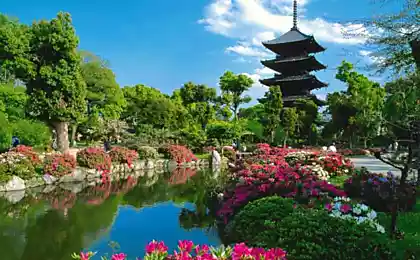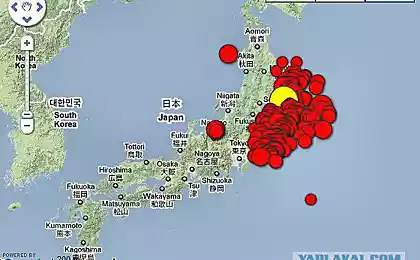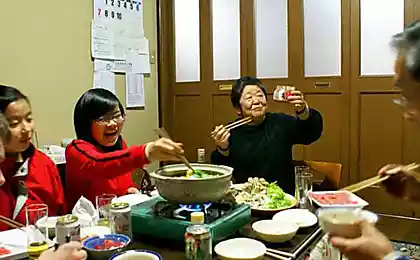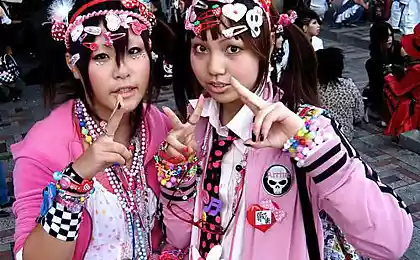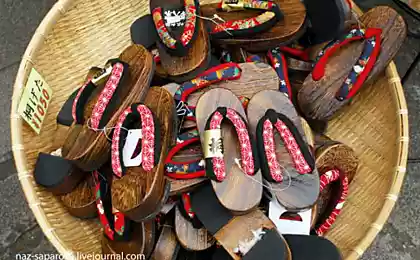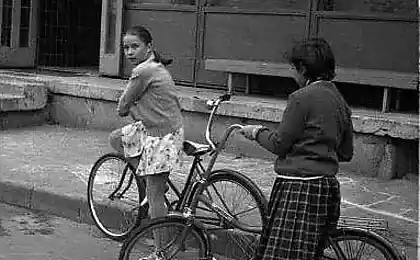1436
10 facts about Japan that you may not know
On most enigmatic nation planete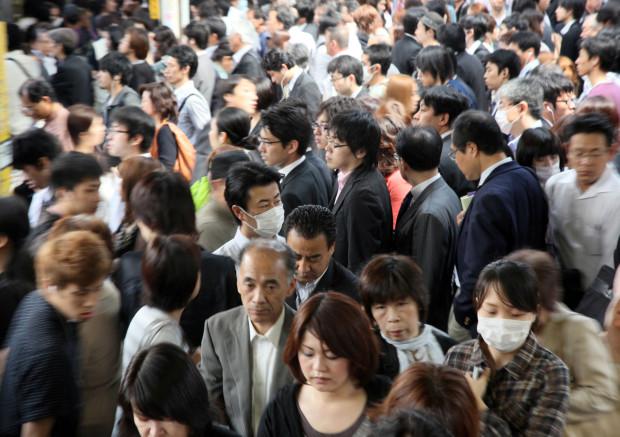
Japan - a great and wonderful country, but many people know about it and its culture quite a bit. And it has a story to tell. For example:
1. In Japan, there are perfectly normal crude koninu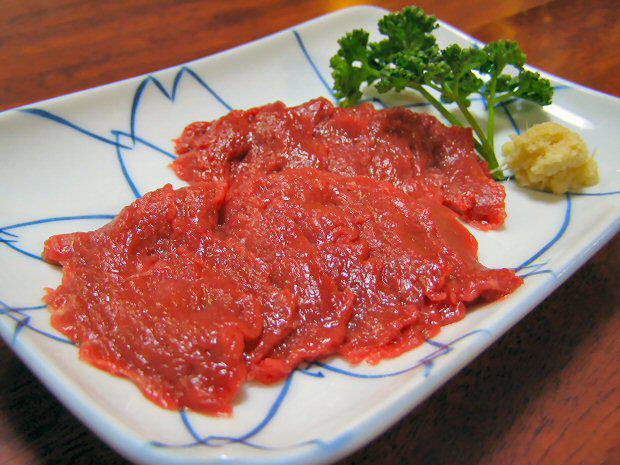
Many of us cringe at the thought of what to eat horse meat, especially raw and cold. But in Japan, raw horse meat, also called basashi, is considered a delicacy and served in many restaurants. This is not a fad - the Japanese eat raw horse meat for decades.
Basashi much more useful than pork and beef, and from it is much more difficult to pick up E. coli. Konin lot of protein and linoleic acid, but low in calories. Furthermore, horsemeat, possibly able to extend the life. Published in 2013, the demographic data showed that Japan's longest-lived people of Nagano Prefecture: the average life expectancy - 80, 88 years in men and 87 in women 18. Their secret - they eat horse meat.
2. The 1500 earthquake in god
Japan - very beautiful, but very dangerous country. Not because of the high levels of crime, far - judging by this indicator, it is one of the safest countries in the world. The fact that this is one of the most earthquake-prone regions of the world.
Japan is 1,500 earthquakes a year. Fortunately, most of them - only a faint tremors, but the terrible destructive earthquakes happen here, too. In the past this has led to thousands of deaths and billions of dollars in damage.
The main factor - the geographical position of Japan: the country is located at the junction of four massive tectonic plates, and when the plates move, an earthquake occurs. In 2011, the plate suddenly began to move very actively, which led to the catastrophe.
That earthquake, known as Tohoku, is considered the strongest and most destructive earthquake in the history of Japan - its magnitude was 9, 0 points. Despite this, the north still was not the most deadly earthquake: in 1923 Great Kanto earthquake with a magnitude of "only" 7, 9 points, took the lives of 142,800 Japanese residents.
3. Japan - the country of trading avtomatov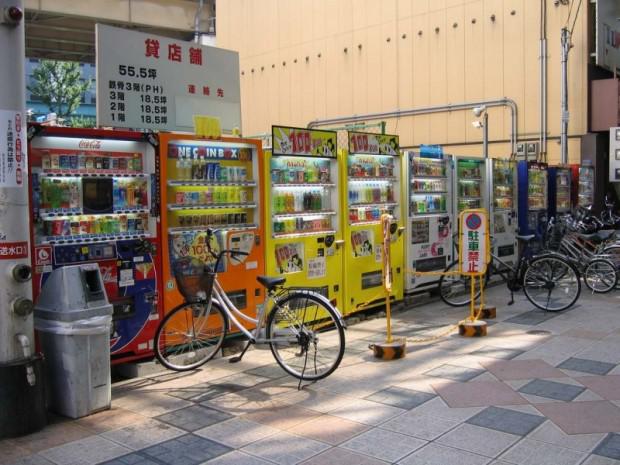
Japanese love vending machines - are scattered across the country about 5520, five different instances. Over the years, these machines are greatly improved, some of them - very comfortable, others - utterly bizarre.
In most countries, vending machines usually sell snacks: chips, candy, soft drinks. But the Japanese combine practicality vending machines with their love of innovation and the unusual.
In Japan's perfectly normal to buy in vending machines fresh eggs, bags of rice, bouquets of fresh flowers, toilet paper, condoms, umbrellas, live fish, dirty magazines - everything you can imagine. Unusual, but very comfortable.
4. Japan's perfectly normal to slurp when eating noodles or sup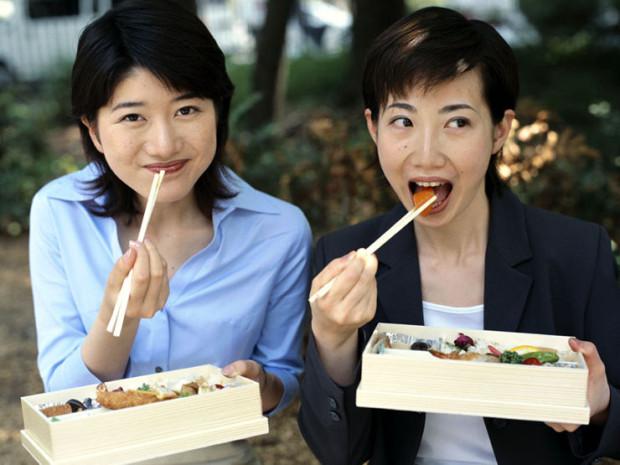
In the western world it has made, without making any superfluous sounds - chomping or prihlёbyvanie considered unnecessary and rude. But in Japan, still quite the opposite - slurp perfectly normal and acceptable, even in public. And even strongly recommended.
When the Japanese eat hot soup or noodles, they smacked, prihlёbyvayut, slurp and behave in terms of Western man like pigs. Why is that? Such behavior in Japan is seen as a sign of appreciation and approval. This means that you like so much soup or noodles that you want to cram into his mouth as much as possible at any cost. In other words, this behavior - a compliment to the chef for his excellent work.
5. In Japan, very popular beysbol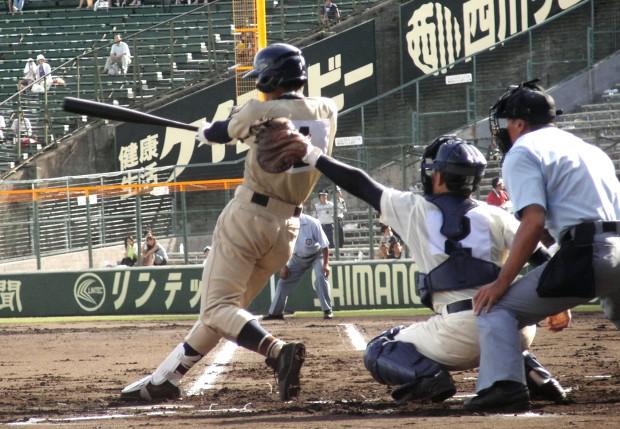
The national sport of Japan - Sumo, and the most beloved and popular - baseball, which is otherwise called yakiu. It brought to Japan American athlete named Horace Wilson in 1873 at Tokyo University under the direction of Mr. Wilson, the first baseball game, and since then has become the most favorite yakiu Japanese team sport.
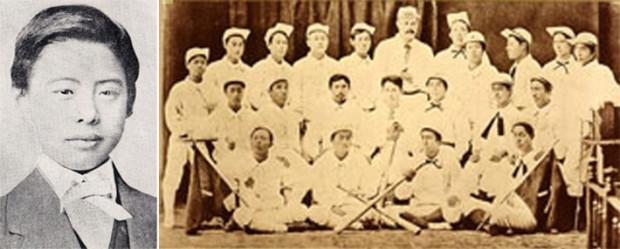
In Japan, there are two professional baseball leagues of the Pacific and Central. In addition, baseball is played in high schools and universities across the country. Games involving school teams often happy to watch on TV - such amateur games are often broadcast on national television.
6. In Japan, a very high level samoubiystv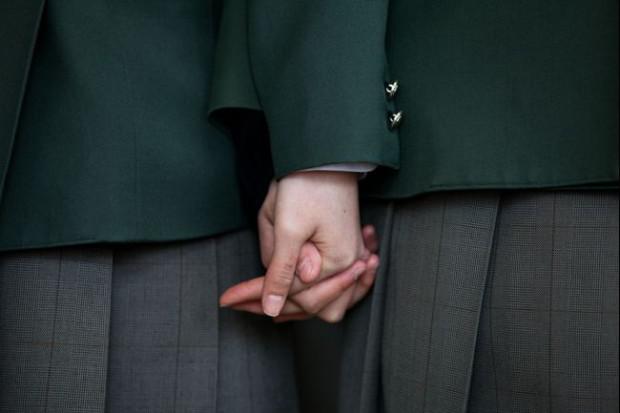
Japan, as we have said - rich country with an interesting history and a vibrant culture. She is beautiful. She - a home for modern, disciplined, hard-working and successful in all aspects of the nation. But not everything is rosy: in Japan is very high suicide rate. Annually reduce their own lives more than 30 000 men and women, with an estimated 24, 4 people out of 100 000 Japanese citizens are likely to impose his own hand.
Suicide in Japan has become a serious problem: in fact, the leading cause of death among women aged 15 to 34 years and men aged 20 to 44 years.
Why is a wealthy, highly developed country like this happening? Apparently, in Japan, a big problem with unemployment. If you save the job suddenly does not work, many of the former employees reduce their own lives. The saddest thing is that most of the problems with the work of young people committing suicide, many - recent graduates. Other causes of suicides among Japanese - depression and financial difficulties.
7. The same water for bathing in Japan using a whole semya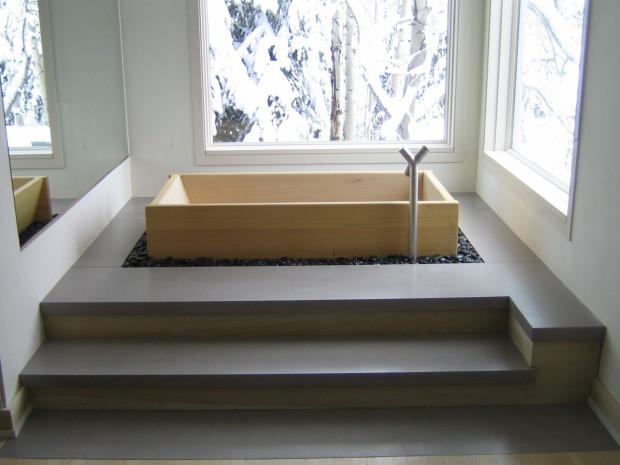
For the Japanese bath - not the only way to wash off dirt from the body, it is also an effective way to relax the mind, body and spirit. Therefore, many Japanese in the evening take a hot bath and regularly go to the hot springs. In contrast to the Western world, members of a Japanese family use the same water for bathing. But they did not take a bath at the same time: first clean the father, followed by the mother, and then the children.
Bath have almost every Japanese house, but the Japanese bath is used more for relaxation than for washing. Of course, the hygiene of the Japanese watched very carefully, but not in the wash bath and basin next to it. And only after carefully will wash and wash away off all soap and dirt, falling apart in the bathroom and rest.
Because they are washed in a different water, hot water is clean and clear, and it may use other family members. What's interesting is that if the house guest, it is his honor to provide soak in the hot tub first.
8. In Japan, many streets have no nazvaniy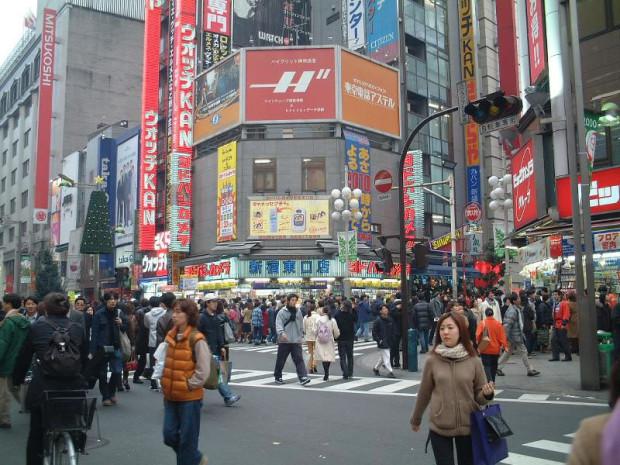
Yes exactly. But then the Japanese are guided in their cities among the nameless streets? They just kind of address system: instead of the street names used numbers quarters.
Each quarter is given a unique number - and this figure is location. The spaces between the blocks - the streets - remain without names. In Japan, usually say: "I live in the second block," or "I work in the 13th block" instead of "I'm working on the streets of Crocodiles," or "I live on the banana Avenue».
Many people from Western countries, such a system may seem muddled and ineffective, but actually it is not. Get used to this system is very simple, it is also easy to use, and thus find the right area can be very fast.
For example, if the restaurant you're looking for in Tokyo, situated in the 12th quarter, then you need to take a map and find her quarter at number 12. And yet - you find where to go. In addition, the quarter is easier to associate with a place on the map and memorize the route than usual for us the names of streets.
9. In Japan, normally adopt adult muzhchin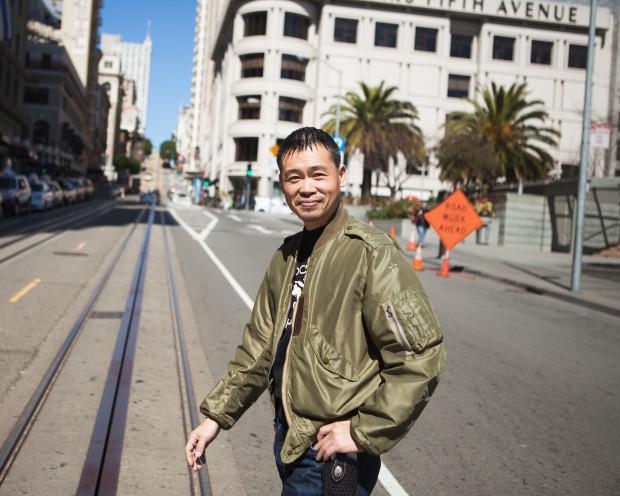
Typically, a pair of Western countries adopt infants or small children. The reasons may be different - infertility or companionship, it does not matter. But in Japan, all very different: for many Japanese families, especially the wealthy, it is normal to adopt adult men.
Why is that? There are two reasons. Firstly, the adult male will continue the race. Japan, like many other countries in the world - a patriarchal society, and the names are passed through male children. Couples who have only daughters, it may consider adopting an adult male in the family to genus is not extinguished.
Secondly, the adult male will provide additional financial support to the family (if the family is not too is consistent) or help in the business. This practice is quite common in wealthy Japanese families owning large companies.
Adult males can inherit the family business and to manage it, or start your own. Even if a family has other contenders for the legacy of the male, but the father sees that doing things they do not fit, it can take the family a good leader.
The Japanese invented not only hentai, but netaymori - sushi served on the naked female body. More Japanese have tsubashanpu, bukakke and unagi. In practice tsubashanpu man feels sexual pleasure from the fact that spits in the face of many girls. In bukakke woman or a man in the face of falling sperm of several males. And in the unagi is placed in the vagina of women live eel.
The Japanese invented the binding - an important element of BDSM. Also, in Japan there are agencies that offer services to people sadomasochistic if they experience pleasure from pain and humiliation. Sex doll sold for $ 10,000 or leased for $ 100 per hour. Any sexual perversion that you can imagine in Japan and certain practices considered normal.
via factroom.ru

Japan - a great and wonderful country, but many people know about it and its culture quite a bit. And it has a story to tell. For example:
1. In Japan, there are perfectly normal crude koninu

Many of us cringe at the thought of what to eat horse meat, especially raw and cold. But in Japan, raw horse meat, also called basashi, is considered a delicacy and served in many restaurants. This is not a fad - the Japanese eat raw horse meat for decades.
Basashi much more useful than pork and beef, and from it is much more difficult to pick up E. coli. Konin lot of protein and linoleic acid, but low in calories. Furthermore, horsemeat, possibly able to extend the life. Published in 2013, the demographic data showed that Japan's longest-lived people of Nagano Prefecture: the average life expectancy - 80, 88 years in men and 87 in women 18. Their secret - they eat horse meat.
2. The 1500 earthquake in god

Japan - very beautiful, but very dangerous country. Not because of the high levels of crime, far - judging by this indicator, it is one of the safest countries in the world. The fact that this is one of the most earthquake-prone regions of the world.
Japan is 1,500 earthquakes a year. Fortunately, most of them - only a faint tremors, but the terrible destructive earthquakes happen here, too. In the past this has led to thousands of deaths and billions of dollars in damage.
The main factor - the geographical position of Japan: the country is located at the junction of four massive tectonic plates, and when the plates move, an earthquake occurs. In 2011, the plate suddenly began to move very actively, which led to the catastrophe.
That earthquake, known as Tohoku, is considered the strongest and most destructive earthquake in the history of Japan - its magnitude was 9, 0 points. Despite this, the north still was not the most deadly earthquake: in 1923 Great Kanto earthquake with a magnitude of "only" 7, 9 points, took the lives of 142,800 Japanese residents.
3. Japan - the country of trading avtomatov

Japanese love vending machines - are scattered across the country about 5520, five different instances. Over the years, these machines are greatly improved, some of them - very comfortable, others - utterly bizarre.
In most countries, vending machines usually sell snacks: chips, candy, soft drinks. But the Japanese combine practicality vending machines with their love of innovation and the unusual.
In Japan's perfectly normal to buy in vending machines fresh eggs, bags of rice, bouquets of fresh flowers, toilet paper, condoms, umbrellas, live fish, dirty magazines - everything you can imagine. Unusual, but very comfortable.
4. Japan's perfectly normal to slurp when eating noodles or sup

In the western world it has made, without making any superfluous sounds - chomping or prihlёbyvanie considered unnecessary and rude. But in Japan, still quite the opposite - slurp perfectly normal and acceptable, even in public. And even strongly recommended.
When the Japanese eat hot soup or noodles, they smacked, prihlёbyvayut, slurp and behave in terms of Western man like pigs. Why is that? Such behavior in Japan is seen as a sign of appreciation and approval. This means that you like so much soup or noodles that you want to cram into his mouth as much as possible at any cost. In other words, this behavior - a compliment to the chef for his excellent work.
5. In Japan, very popular beysbol

The national sport of Japan - Sumo, and the most beloved and popular - baseball, which is otherwise called yakiu. It brought to Japan American athlete named Horace Wilson in 1873 at Tokyo University under the direction of Mr. Wilson, the first baseball game, and since then has become the most favorite yakiu Japanese team sport.

In Japan, there are two professional baseball leagues of the Pacific and Central. In addition, baseball is played in high schools and universities across the country. Games involving school teams often happy to watch on TV - such amateur games are often broadcast on national television.
6. In Japan, a very high level samoubiystv

Japan, as we have said - rich country with an interesting history and a vibrant culture. She is beautiful. She - a home for modern, disciplined, hard-working and successful in all aspects of the nation. But not everything is rosy: in Japan is very high suicide rate. Annually reduce their own lives more than 30 000 men and women, with an estimated 24, 4 people out of 100 000 Japanese citizens are likely to impose his own hand.
Suicide in Japan has become a serious problem: in fact, the leading cause of death among women aged 15 to 34 years and men aged 20 to 44 years.
Why is a wealthy, highly developed country like this happening? Apparently, in Japan, a big problem with unemployment. If you save the job suddenly does not work, many of the former employees reduce their own lives. The saddest thing is that most of the problems with the work of young people committing suicide, many - recent graduates. Other causes of suicides among Japanese - depression and financial difficulties.
7. The same water for bathing in Japan using a whole semya

For the Japanese bath - not the only way to wash off dirt from the body, it is also an effective way to relax the mind, body and spirit. Therefore, many Japanese in the evening take a hot bath and regularly go to the hot springs. In contrast to the Western world, members of a Japanese family use the same water for bathing. But they did not take a bath at the same time: first clean the father, followed by the mother, and then the children.
Bath have almost every Japanese house, but the Japanese bath is used more for relaxation than for washing. Of course, the hygiene of the Japanese watched very carefully, but not in the wash bath and basin next to it. And only after carefully will wash and wash away off all soap and dirt, falling apart in the bathroom and rest.
Because they are washed in a different water, hot water is clean and clear, and it may use other family members. What's interesting is that if the house guest, it is his honor to provide soak in the hot tub first.
8. In Japan, many streets have no nazvaniy

Yes exactly. But then the Japanese are guided in their cities among the nameless streets? They just kind of address system: instead of the street names used numbers quarters.
Each quarter is given a unique number - and this figure is location. The spaces between the blocks - the streets - remain without names. In Japan, usually say: "I live in the second block," or "I work in the 13th block" instead of "I'm working on the streets of Crocodiles," or "I live on the banana Avenue».
Many people from Western countries, such a system may seem muddled and ineffective, but actually it is not. Get used to this system is very simple, it is also easy to use, and thus find the right area can be very fast.
For example, if the restaurant you're looking for in Tokyo, situated in the 12th quarter, then you need to take a map and find her quarter at number 12. And yet - you find where to go. In addition, the quarter is easier to associate with a place on the map and memorize the route than usual for us the names of streets.
9. In Japan, normally adopt adult muzhchin

Typically, a pair of Western countries adopt infants or small children. The reasons may be different - infertility or companionship, it does not matter. But in Japan, all very different: for many Japanese families, especially the wealthy, it is normal to adopt adult men.
Why is that? There are two reasons. Firstly, the adult male will continue the race. Japan, like many other countries in the world - a patriarchal society, and the names are passed through male children. Couples who have only daughters, it may consider adopting an adult male in the family to genus is not extinguished.
Secondly, the adult male will provide additional financial support to the family (if the family is not too is consistent) or help in the business. This practice is quite common in wealthy Japanese families owning large companies.
Adult males can inherit the family business and to manage it, or start your own. Even if a family has other contenders for the legacy of the male, but the father sees that doing things they do not fit, it can take the family a good leader.
The Japanese invented not only hentai, but netaymori - sushi served on the naked female body. More Japanese have tsubashanpu, bukakke and unagi. In practice tsubashanpu man feels sexual pleasure from the fact that spits in the face of many girls. In bukakke woman or a man in the face of falling sperm of several males. And in the unagi is placed in the vagina of women live eel.
The Japanese invented the binding - an important element of BDSM. Also, in Japan there are agencies that offer services to people sadomasochistic if they experience pleasure from pain and humiliation. Sex doll sold for $ 10,000 or leased for $ 100 per hour. Any sexual perversion that you can imagine in Japan and certain practices considered normal.
via factroom.ru
